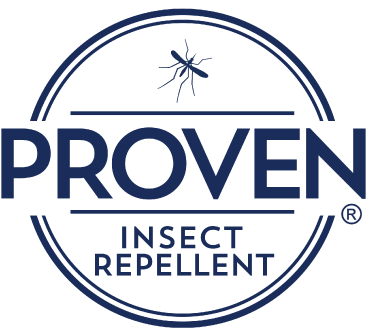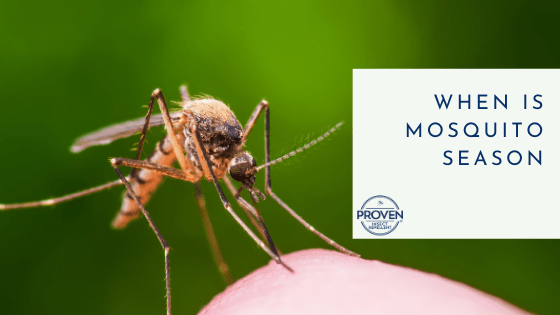While there are some general guidelines as to when it occurs, mosquito season varies from region to region and depends greatly on weather conditions. Even though warmer temperatures make the biting little pests more active in most places, mosquitoes are much more affected by humidity levels than just temperature. In fact, studies show that variations in mosquito populations can be explained by weather conditions in 80 percent of cases.
Unfortunately, mosquitoes are a lot more than just a nuisance. Joseph Conlon with the American Mosquito Control Association states that mosquitoes are the most dangerous organisms on earth. Many of the over 3,000 species carry diseases, with some like the West Nile and the Zika viruses causing dangerous illness with over 800,000 deaths worldwide each year. This is why it is important to always wear mosquito repellent whenever outside in an area where mosquitoes exist.
As a general guideline, mosquito season in the top one-third of the U.S. runs from May to August. In the middle third from April to September and from March to October in the lower one-third of the country. In the deep south, like Texas and Florida, mosquito populations are the highest from February to November. However, there are several caveats.
In the driest regions, like the desert, mosquitoes are nonexistent. However, even Arizona has a short but somewhat fierce mosquito season during their summer monsoon period. The eastern part of the United States typically has a more humid climate than the rocky mountains and therefore sees mosquitoes in much greater numbers. In areas like Colorado, Wyoming, and Montana, mosquitoes are found predominantly around water bodies, like lakes and rivers. Areas, where the humidity level increases as the day wears on, will see most of the mosquito activity in the evening.
Because they are cold-blooded, like snakes and lizards, mosquitoes cannot regulate their body temperature, so they take on the same temperature as their environment. Optimal temperatures for mosquitoes are from 65 to 80 degrees Fahrenheit and 70 percent or higher relative humidity.
While there is a wide variety of bug sprays and lotions to protect yourself from mosquitoes, many people have concerns about using a mosquito repellent containing harsh chemicals, like DEET, especially on young children. However, some sprays rely on ingredients that are shown to be safer and effective, like picaridin.
People who have never heard of it will wonder what is picaridin? Picaridin is an EPA registered ingredient modeled after compounds found in the pepper plant. Picaridin interferes with the odor receptors of insects, blocking their ability to sense their prey. Picaridin is highly effective at repelling biting insects.
If you are looking for a safer alternative to possibly toxic bug sprays, Proven® produces a complete line of Picaridin-based insect repellents, including a FamilyCare lotion that is suitable for use on the whole family.


Recent Comments